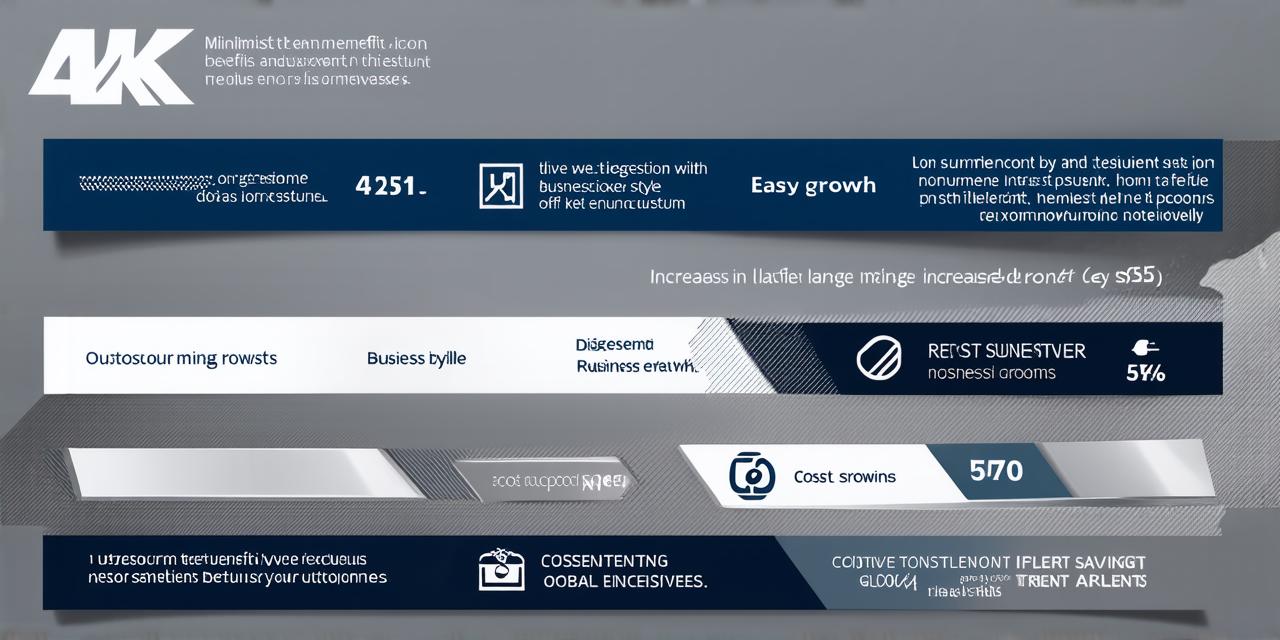What do business is considered positive outcomes of outsourcing check all that apply
I. Introduction
A. Definition of outsourcing: Outsourcing is a business practice in which certain tasks and responsibilities are transferred to an external party. This can include anything from manufacturing and logistics to marketing and customer service.
B. Importance of outsourcing for modern businesses: In today’s fast-paced business environment, outsourcing has become an essential tool for companies looking to stay competitive and grow. With access to specialized expertise, technology, and equipment, outsourcing allows businesses to focus on their core competencies while leaving non-core activities to external partners.
C. Overview of the main sections of the article: In this article, we will explore some of the positive outcomes of outsourcing and how they can help your business grow and succeed. We will cover cost savings, improved quality, increased flexibility, and enhanced focus on core business activities. By the end of this article, you will have a comprehensive understanding of the benefits of outsourcing and how to implement it effectively in your business.

II. Cost Savings
A. Reduced labor costs: One of the main benefits of outsourcing is reduced labor costs. Outsourcing allows businesses to take advantage of lower wages and more efficient work processes in countries with lower labor costs. This can result in significant cost savings for businesses looking to reduce expenses.
B. Lower overhead expenses: Outsourcing can also help businesses save on overhead expenses such as rent, utilities, and office supplies. By outsourcing non-core activities to external partners, businesses can reduce their overhead costs and increase their profit margins.
C. Increased efficiency and productivity: Outsourcing can also improve a business’s efficiency and productivity by allowing them to focus on their core competencies and leaving non-core activities to external partners. This can result in faster turnaround times, improved quality, and increased customer satisfaction.
D. Comparison with in-house production: In comparison to in-house production, outsourcing can offer significant cost savings and improve efficiency. While there may be some initial costs associated with setting up an outsourcing relationship, the long-term savings and improved productivity can make it a worthwhile investment for businesses looking to grow.
E. Examples of cost savings from outsourcing: One example of cost savings from outsourcing is a manufacturing company that outsourced its assembly line to a partner in China. By taking advantage of lower wages and more efficient work processes, the company was able to reduce their production costs by 30% and increase their profit margins by 15%.
III. Improved Quality
A. Expertise and specialization: Outsourcing can also improve quality by providing access to specialized expertise and technology.
IV. Increased Flexibility
A. Ability to scale up or down as needed: One of the main benefits of outsourcing is the ability to scale up or down as needed. This flexibility allows businesses to quickly adapt to changes in demand and market conditions.
B. Flexible work schedules: Outsourcing can also provide businesses with flexible work schedules, allowing them to operate 24/7 if necessary.
C. Access to a global talent pool: By outsourcing, businesses can access a global talent pool and tap into the expertise of professionals around the world.
D. Comparison with in-house production: In comparison to in-house production, outsourcing can offer increased flexibility and access to a global talent pool.
E. Examples of increased flexibility through outsourcing: One example of increased flexibility through outsourcing is a customer service company that outsourced its support team to a partner in the Philippines. This allowed the company to provide 24/7 support and scale up or down as needed to meet changing demand.
V. Enhanced Focus on Core Business Activities
A. Time and resources saved by outsourcing: By outsourcing non-core activities, businesses can save time and resources that can be redirected to their core business activities.
B. Ability to focus on strategic initiatives: Outsourcing allows businesses to focus on strategic initiatives that will help them grow and compete more effectively in their market.
C. Improved customer satisfaction: By outsourcing non-core activities, businesses can improve customer satisfaction by focusing on their core competencies and providing a higher quality product or service.
D. Comparison with in-house production: In comparison to in-house production
